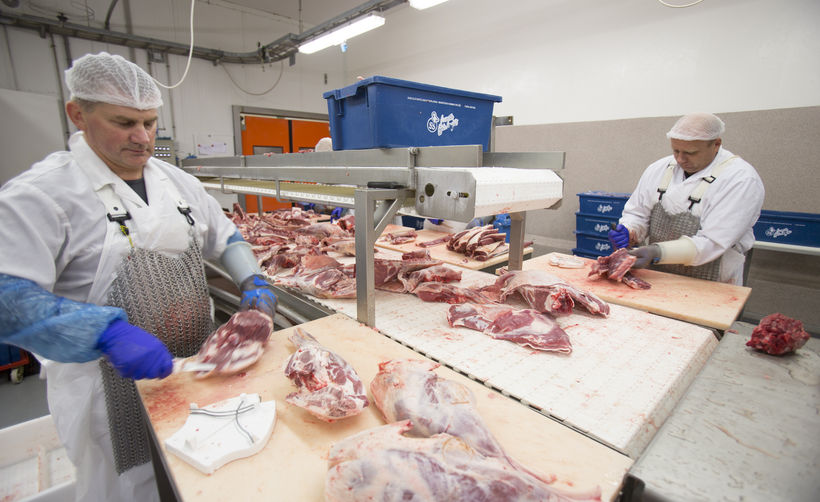Exporting Icelandic Lamb not Profitable
The cost of producing lamb in Iceland is higher than the average price obtained for the meat abroad. Therefore, exporting the meat is not profitable. This is the result of an assessment of meat processing plants in Iceland, done by the consulting firm KPMG at the request of the Icelandic Ministry of Industry and Innovation,.
The report suggests that the reason for surplus production in the field is both increased production of lamb and reduced consumption of lamb per capita in Iceland. Surplus production has been met by increasing export.
The authors of the report conclude that based on the costs involved - average price obtained from export, the cost of export, price paid for slaughtering the sheep, and payments to farmers - producing lamb for foreign markets is not profitable.
The authors stress the importance of reaching an equilibrium between supply and demand, and mention that ways need to be found to reduce production. The report looks at costs involved in transporting sheep to slaughter, the slaughtering of sheep, meat processing, distribution and stocking of meat. Sheep farming itself is not included in the assessment, nor is wholesale or retail sale of the meat.
The report suggests that slaughter houses are too many and their numbers need to be reduced to improve efficiency. Reducing the number of meat processing plants could also improve profitability if the slaughter houses left were able to increase automation.
Minister of Fisheries and Agriculture Kristján Þór Júlíusson states that the government will seek ways to improve efficiency in the value chain and find an equilibrium between supply and demand of lamb. The result of the report will, according to him, be used in a review of the agricultural agreement.


/frimg/1/38/77/1387784.jpg)





